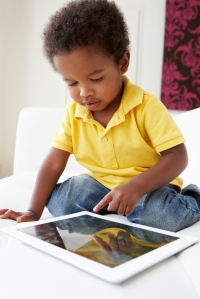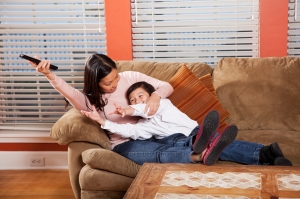 The most significant lifestyle change over the last decade or so that affects young children is the increase in “screen time” – time spent in front of a television, computer, hand-held device, gaming console, etc. The development of healthy habits regarding such media usage is crucial in early childhood. Children this age need active play to promote the development of self-discipline, perseverance, imagination, and respect.
The most significant lifestyle change over the last decade or so that affects young children is the increase in “screen time” – time spent in front of a television, computer, hand-held device, gaming console, etc. The development of healthy habits regarding such media usage is crucial in early childhood. Children this age need active play to promote the development of self-discipline, perseverance, imagination, and respect.
Poor media habits have been linked to a number of issues that can affect future success and happiness, including increased aggression, sleep problems, lower reading scores, bullying, inability to delay gratification, and health issues, such as being overweight or obese and having difficulty controlling ADHD.
Ways to help your child:
- Minimize screen time. While it is not necessary to eliminate screen time altogether, it is best to minimize it. For children 2-5 years old, 1-2 hours is the recommended maximum. Be sure to turn all forms of media off during family mealtimes.

- Monitor programming. Ensure that what children are watching and doing are appropriate. Children are heavily influenced by violent images and commercialized messages. They tend to act the way they see characters in the media act. Violence is internalized as an acceptable form of play and an appropriate way to solve problems. Commercialized messages tend to encourage excessive materialism, unhealthy eating and health habits, and unrealistic ideas of body image.
- Stay involved. Talk to your child about what he or she is watching. Discuss what is real and what is pretend. Talk about how problems were solved. Label feelings that were portrayed.
For help turning your family’s media habits around or to make sure they are appropriate, consider utilizing the following resources:
www.Kidsfirst.org
www.Commonsensemedia.org
www.Mediaandthefamily.org
www.tvSmarter.com
Back to blog listing